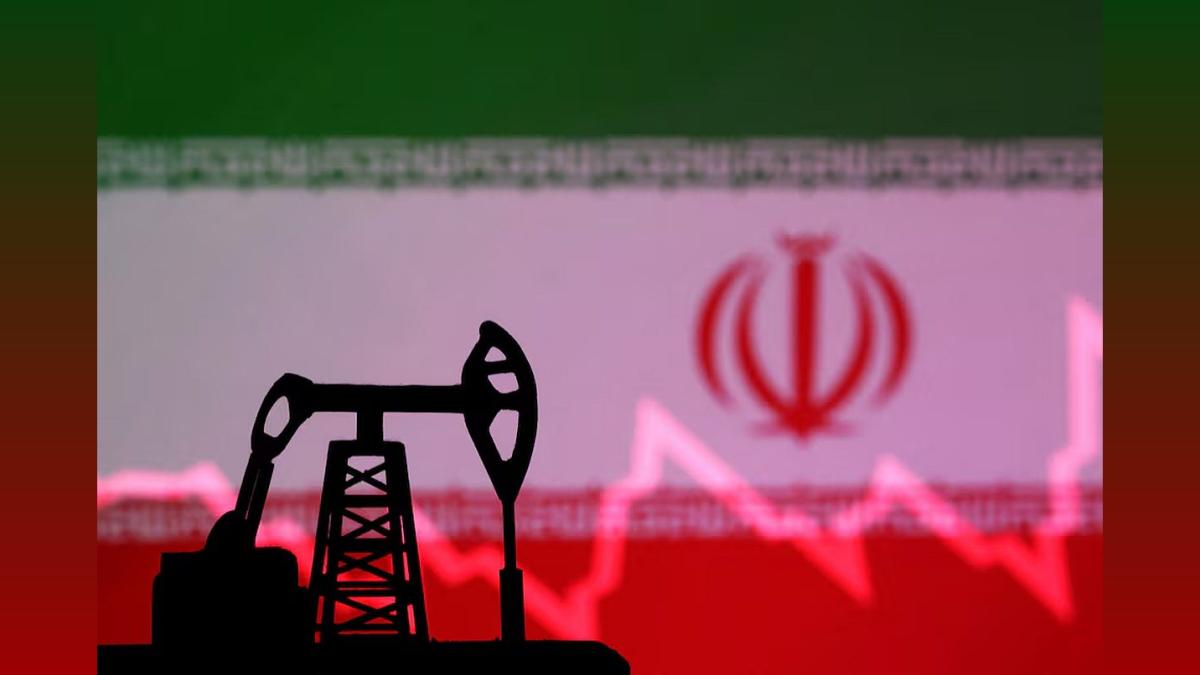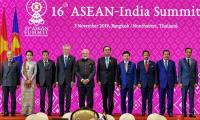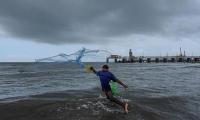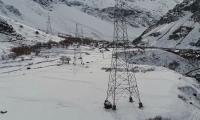India Concerned Over IMEC Delay: Jaishankar
India's External Affairs Minister S Jaishankar expresses concern over the delay in implementing the India-Middle East-Europe Economic Corridor (IMEC) due to the ongoing crisis in West Asia. The project, signed in September, aims to connect Asia, the Middle East, and the West.

Photograph: Dado Ruvic/Reuters
New Delhi, May 12 (PTI) The delay in implementation of the India-Middle East-Europe Economic Corridor (IMEC) in view of the current situation in West Asia is a matter of "concern" and the expectation generated following the firming up of the initiative in September last has to be "adjusted" a bit now, External Affairs Minister S Jaishankar has said.
In an exclusive interview to PTI, Jaishankar said all the stakeholders of the IMEC -- a ship-to-rail transit network -- are committed to it as they feel it is a "great" initiative.
"It has definitely been a source of concern for us and the kind of expectation we had when the agreement was signed in September, we have had to adjust it a bit," he said when asked whether the ongoing crisis in West Asia would delay the project by at least a few years.
"On the other hand, all the parties to the agreement have reconfirmed that 'we think it is a great idea' and all are committed to it," he said.
Billed as a pathbreaking initiative, the IMEC envisages a vast road, railroad and shipping network among Saudi Arabia, India, the United States and Europe with an aim to ensure integration among Asia, the Middle East and the West.
"So we will have to wait for things to stabilise a bit. I think it is a matter of great concern and it is also a very complex issue. Because it is not a single issue on which you have a black and white judgement," Jaishankar said.
"I think you have a range of concerns out there, from terrorism to hostages to humanitarian corridor to a two-state solution," he said in the interview late Thursday.
"So how do you get the balance right and more importantly, how do you make it actually work on the ground," he added.
The IMEC also envisages the inclusion of an electricity cable network, a hydrogen pipeline, high-speed data cable network to facilitate overall economic growth in the partner countries.
The India-Middle East-Europe Economic Corridor is also seen as an initiative by like-minded nations to gain strategic influence in the face of China's Belt and Road Initiative (BRI), which has faced increasing criticism over a lack of transparency and disregard for the sovereignty of the nations.
The BRI is a mega connectivity project that connects China with Southeast Asia, Central Asia, Russia and Europe.
The IMEC initiative was firmed up on the sidelines of the G20 Summit in Delhi. An agreement was signed by India, Saudi Arabia, the European Union, the United Arab Emirates (UAE), the US and some other G20 partners for the corridor.
There has been a delay in rolling out the initiative on the ground in view of the precarious security situation in West Asia.
West Asia has been witnessing escalating tensions following attacks on Israel by Hamas on October 7 that killed 1,200 people. Hamas kidnapped more than 220 others, some of whom were released during a brief ceasefire.
The tensions escalated further in view of fresh hostilities between Iran and Israel.
Last month, Iran launched its first direct attack on Israel by firing hundreds of drones and missiles in response to a suspected Israeli strike on its consulate in Damascus on April 1.
India has been calling for de-escalation of the situation and creating conditions for an early resumption of direct peace negotiations towards a two-state solution to the Palestine issue.
In an exclusive interview to PTI, Jaishankar said all the stakeholders of the IMEC -- a ship-to-rail transit network -- are committed to it as they feel it is a "great" initiative.
"It has definitely been a source of concern for us and the kind of expectation we had when the agreement was signed in September, we have had to adjust it a bit," he said when asked whether the ongoing crisis in West Asia would delay the project by at least a few years.
"On the other hand, all the parties to the agreement have reconfirmed that 'we think it is a great idea' and all are committed to it," he said.
Billed as a pathbreaking initiative, the IMEC envisages a vast road, railroad and shipping network among Saudi Arabia, India, the United States and Europe with an aim to ensure integration among Asia, the Middle East and the West.
"So we will have to wait for things to stabilise a bit. I think it is a matter of great concern and it is also a very complex issue. Because it is not a single issue on which you have a black and white judgement," Jaishankar said.
"I think you have a range of concerns out there, from terrorism to hostages to humanitarian corridor to a two-state solution," he said in the interview late Thursday.
"So how do you get the balance right and more importantly, how do you make it actually work on the ground," he added.
The IMEC also envisages the inclusion of an electricity cable network, a hydrogen pipeline, high-speed data cable network to facilitate overall economic growth in the partner countries.
The India-Middle East-Europe Economic Corridor is also seen as an initiative by like-minded nations to gain strategic influence in the face of China's Belt and Road Initiative (BRI), which has faced increasing criticism over a lack of transparency and disregard for the sovereignty of the nations.
The BRI is a mega connectivity project that connects China with Southeast Asia, Central Asia, Russia and Europe.
The IMEC initiative was firmed up on the sidelines of the G20 Summit in Delhi. An agreement was signed by India, Saudi Arabia, the European Union, the United Arab Emirates (UAE), the US and some other G20 partners for the corridor.
There has been a delay in rolling out the initiative on the ground in view of the precarious security situation in West Asia.
West Asia has been witnessing escalating tensions following attacks on Israel by Hamas on October 7 that killed 1,200 people. Hamas kidnapped more than 220 others, some of whom were released during a brief ceasefire.
The tensions escalated further in view of fresh hostilities between Iran and Israel.
Last month, Iran launched its first direct attack on Israel by firing hundreds of drones and missiles in response to a suspected Israeli strike on its consulate in Damascus on April 1.
India has been calling for de-escalation of the situation and creating conditions for an early resumption of direct peace negotiations towards a two-state solution to the Palestine issue.
You May Like To Read
TODAY'S MOST TRADED COMPANIES
- Company Name
- Price
- Volume
- Vodafone-Idea
- 11.96 (+ 5.75)
- 113885452
- Sylph-Industries
- 0.77 ( -1.28)
- 51063360
- Mangalam-Industrial
- 0.90 ( -1.10)
- 39473361
- Shish-Industries
- 14.02 ( -9.96)
- 38945873
- Ola-Electric-Mobilit
- 34.40 (+ 9.97)
- 38895972






